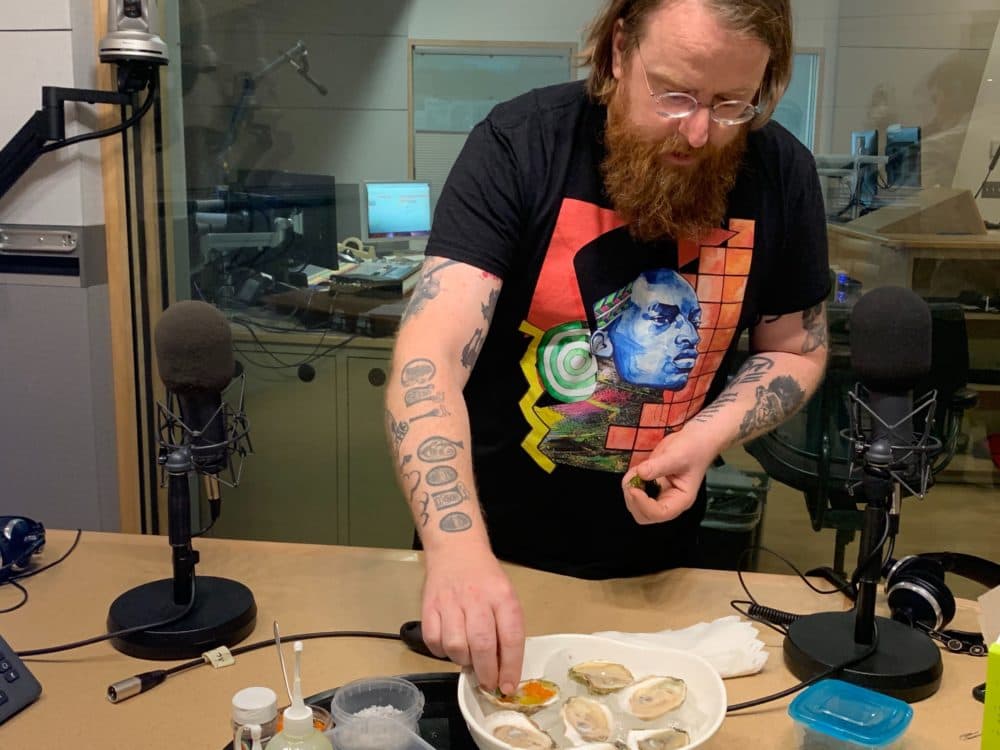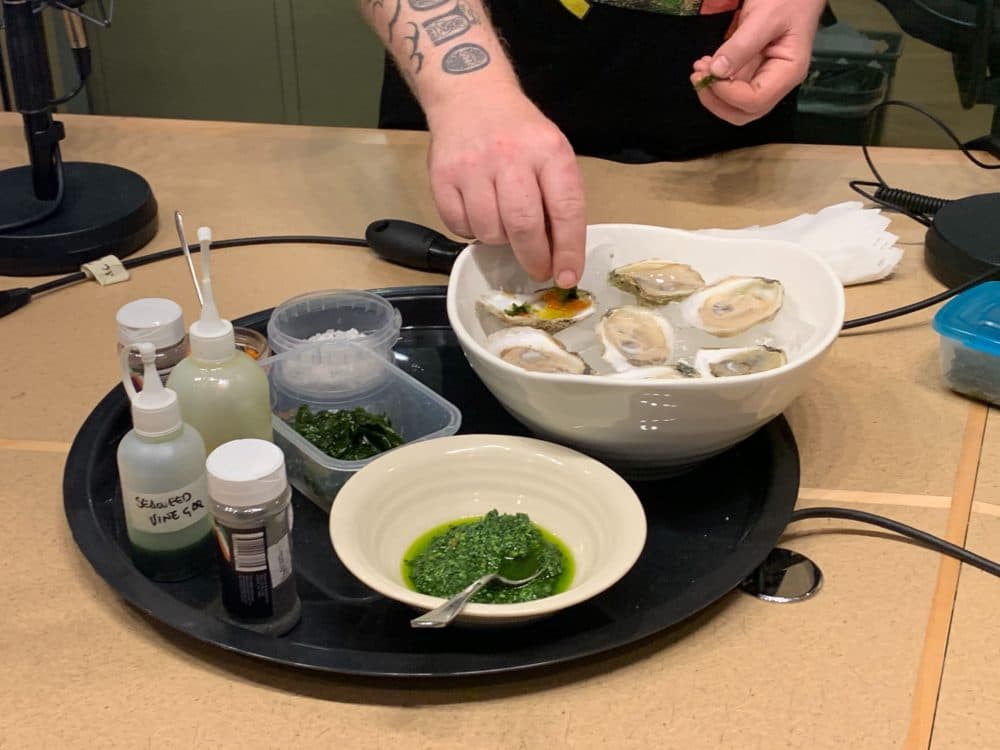Advertisement
'The Irish Cookbook' Sets The Record Straight On Irish Cuisine

The potato has not always been central to Irish cooking. Its rise in popularity in the late 18th and 19th century masks a much more diverse and delicious culinary heritage.
Michelin-star chef and author JP McMahon was in town in March, and joined us in studio to talk about his book, "The Irish Cookbook," and set the record straight.
Interview Highlights
On why he wrote this book:
"I suppose the task I set myself to write the book was to look back at the 10,000 years of people being on the island and what they had eaten. So when you go all the way back that far, you have oysters and you have wild game like duck and woodcock, and you have a fish like salmon and trout, and eel, and you have seaweeds and you have wild herbs. And each period changes with different waves. Sometimes it's migration and sometimes it's other things."
On why some traditions got lost over time:
"A lot of the factors come down to warring tribes and colonization. And if you look at the way Irish food has changed in the last 2,000 years — you have early Christian monks and they set up monasteries and then the Vikings come and there's conflict, and then the Anglo Normans come. The issue of land has always been a factor in who consumes what. And so, to a certain degree, wild game became very much a privilege of those who owned land and those who could hunt it and that wasn't the normal people, for want of a better word. Those who were the surfs or the peasants didn't get to consume that. A lot of the island lived off oats and buttermilk and barley and things that were very much, I suppose, rooted to the ground."

On the potato:
"[The potato was introduced to Ireland by the English.] By probably Walter Raleigh or if not before that, but it came over from South America, maybe through the Canary Islands and up from Spain. And I mean, the potato affected all of Europe, and unfortunately, it had a major impact in Ireland in terms of the famine, or what in Irish they call the great hunger, because it's important to note that there was more food in Ireland during the famine than there was before and after it. And it was more an access and a distribution problem because the the landed gentry did not give the food to the peasants, or the native Irish, after the potato had failed. But the potato, I suppose, was a good and a bad thing. It was good in the sense that the population increase to nine million because lots of people had access to this small little tuber that they could feed a lot of people on a small amount of land. When that failed, it was very tragic because then you had a million people emigrate and a million people die. At the same time, the traditions that we have of Irish food, a lot of them come back via the immigrant experience and that experience would not exist if it wasn't for the famine."
Advertisement
"Even when the Americans celebrate Patrick's Day now, I mean, there is more interest in the states than there is in Ireland to a certain degree, because the immigrant experience is one of nostalgia and desire and wanting the homeland. And that's why a lot of the recipes like corned beef and cabbage or this kind of like longing for lamb stew. A lot of the recipes that we call traditional become codified as 'This is an Irish recipe.' A lot of it, I think, is influenced by the immigrant experience."
On cross cultural influence on Irish food:
"I think that a demand for stuff like soda bread and bacon and cabbage and stuff that when Americans would travel to Ireland and go, 'I want Irish food.' And so to a certain degree we are living up to their expectations."
"In Aniar, our Michelin-star restaurant, [we] only use Irish ingredients. [Other than sugar and white flour, which are not produced in Ireland.] And the rest is all Irish and sometimes people come into the restaurant and they go, 'God, it's very Japanese.' And you go, but it's all Irish, they go 'But it doesn't look like Irish food.' Because it's fish with some like wild plants or sometimes it could be a potato dish. ... When they think of Irish, they think of hearty, they think of comfort, think of warm. ... And it's not that it isn't all that. But they come in and they go, 'God, Joe.' And that's funny because I have yet to get to Japan. I would love to get there because I do love fish and seaweed, and those are two things that I very much associate with Ireland and still people go, 'Yeah, no, no, no, I wouldn't I wouldn't go in there for an Irish meal.' "
This segment aired on September 7, 2020.

